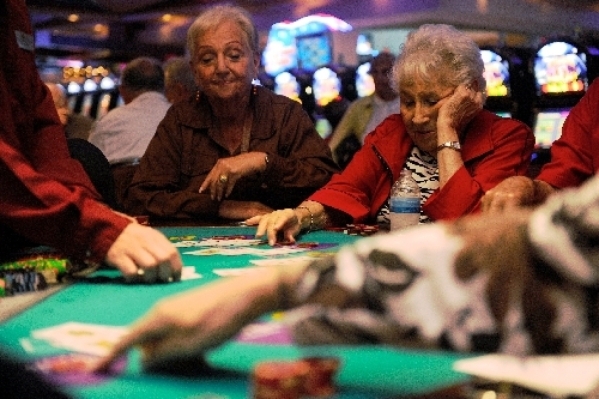Craps seems like a totally random game. After all, you simply try to toss dice off a diamond-patterned wall.
- Why Is There No Craps In Florida Casinos
- Why Is There No Craps In Florida Panhandle
- Why Is There No Craps In Florida Keys
- Why Is There No Craps In Florida Gators
And you don’t necessarily have to hit the wall. But casinos want you to make an attempt to ensure randomness.
A deal that could have allowed at least one new casino in Miami, permitted craps and roulette at the seven casinos operated by the Seminole Tribe of Florida and authorized slot machines in eight. PALM BEACH, Florida –. President Trump has spent most of his winter vacation golfing with friends and family at Mar-A-Lago in Palm Beach, but on his latest outing, the President was caught with his pants upwhen perhaps they should have been down. The reason is, it’s not allowed. There’s no “wrong” betting in Crapless Craps. The best bet at Crapless Craps is placing the 6 or 8 (1.52%). The main attraction of Crapless Craps is that you can’t lose on the comeout, so you have action for at least two rolls. Table game play is seen at the Seminole Hard Rock Hotel & Casino in Hollywood, Fla. The Seminoles are seeking to operate craps and roulette tables at the tribe‘s seven casinos in Florida.
These factors seemingly produce uncontrolled results. However, a small segment of the craps community believes you can influence your results with a certain technique.
This technique is referred to as “dice control” (a.k.a. controlled shooting). It involves the art of tossing dice in a manner that helps you control the winning numbers as you play real money craps.
Dice control sounds great in theory, but it’s actually a scam. I’ll explain more on this method along with why it’s a complete farce.
Basics of Dice Control
The term “dice control” says everything. You’re controlling how you toss the dice. But how do you pull this off?
Everything begins with how you “set” the dice. Setting refers to holding the cubes in a specific manner, with certain numbers covered and exposed.
The V-shape is one of the most classic sets. It involves holding the dice so that the threes form a V-shape. It’s supposed to reduce your odds of throwing a seven.

The next matter is to toss the dice in a consistent manner. You’re aiming to kiss them off the back wall and reduce randomness.
This feat certainly isn’t easy when considering the diamond-patterned wall. But then again, you don’t need to control the outcome very often to gain an edge.
Assuming you can reduce your “sevens rolls ratio” (RSR) by just a bit, then you can swing the odds in your favor. RSR alludes to the ratio of rolls that produce a seven against those that don’t.
Your odds of rolling a seven are one in six, or an RSR of 6:1 (16.67% of the time). But if you can improve to just 6.5:1, then you’re guaranteed profits over time as a “right” bettor (e.g. pass line). Do even better than this, and you’ll be rolling in the winnings.
Experts advise either buying a real craps table or rigging your own for practice purposes. The latter option is more feasible when considering the cost and space requirements of a real table.
These experts also claim that you must practice for months to develop a consistent toss. This seems reasonable when considering how impossible it is to actually control your throws.
You supposedly need to approach this method like a professional athlete hones their craft. A pro basketball player doesn’t just start out hitting 80% of their free throws. Instead, they need to work up to these skills.
The same is allegedly true of dice control in that practice makes perfect. Top craps players are said to toss dice for hours a day outside of the casino.
What’s the Promise of Dice Control?
Some of the biggest proponents of controlled shooting include Dominic LoRiggio, Chris Pawlicki, and Frank Scoblete.
These gambling authors claim that craps is a beatable game. They also contend that you can make a fortune over time with enough hard work.

Scoblete often writes about a late gambler who went by the nickname “The Captain.” He claims that The Captain regularly beat casinos out of big winnings.
Besides earning money, another benefit of dice control is that it flies under the casino’s radar. Staff members will turn a blind eye towards controlled shooters. Therefore, you can use this technique without being hassled.
One more benefit is that dice control is physical in nature. You’ll find that perfecting your dice toss is more fun than sitting around counting cards or trying to see the dealer’s hole card (a.k.a. hole carding).
You may even come to love the practice element. You can treat this matter like a fun game where you want to be the best.
Why Is Dice Control a Complete Scam?
The biggest question mark surrounding controlled shooting is that it’s not banned by casinos. Gambling venues normally don’t care if somebody sets the dice and throws with the same consistency every time.
Casinos are staunchly against allowing advantage gamblers to run over them. They harass and even ban successful card counters to prevent this from happening.

Yet they could care less when it comes to dice setters. Dealers allow these so-called advantage players to set dice within reason.
Now, the aforementioned gambling authors will tout how casinos do harass controlled shooters. They’ll conjure up stories about a dealer or pit boss trying to back off a dice controller.
Another problem with dice control is that there are no reliable examples of successful players. Scoblete’s examples of The Captain are the only stories we have to go off of. But Scoblete has no actual proof that The Captain truly beat casinos or even existed.
Contrast this to other advantage play techniques, like card counting or wheel bias. Both of these strategies have produced documented cases of big winners.
Perhaps another fishy sign is the dice control courses run by LoRiggio and Scoblete. The pair operate Golden Touch seminars, where they teach players controlled shooting for the low price of $1,500.
Of course, they claim that the lofty cost is due to them giving away such valuable information. However, paying $1,500 for an advantage gambling method that’s unproven is over the top.
Many craps enthusiasts want to believe that the game can be beaten through skill. But looking at the facts, things just don’t add up.
Is There a Reliable Way to Beat Craps?
I strongly contend that there’s no legal way to beat craps on a consistent basis. You actually can top the casinos through dice sliding. However, this technique doesn’t satisfy the legal requirement.
The only real way to win in craps is by making good bets and backing them with odds. You start this process by focusing on pass line, come, don’t pass line, and don’t come.
Pass line (made on come-out roll) and come (made after) both have a 1.41% house edge. Don’t pass line (made on come-out roll) and don’t come (made after) each have a 1.36% house advantage.
You can back any of the four aforementioned bets once a “point” number has been established. Betting bigger odds means that a larger portion of your wager won’t be subject to the casino house edge.
Here’s an example to illustrate how larger odds lower the overall house advantage on your wagers:
- 2x odds pass line = 0.848% house edge
- 2x odds don’t pass line = 0.682% house edge
- 5x odds pass line = 0.326%
- 5x odds don’t pass line = 0.227%
- 10x odds pass line = 0.184%
- 10x odds don’t pass line = 0.124%
- 20x odds pass line = 0.099%
- 20x odds don’t pass line = 0.065%

Why Is There No Craps In Florida Casinos
The problem with higher odds is two-fold:
- You must be able to afford the bet.
- Most casinos don’t offer 10x or 20x odds.
Regarding the first point, your odds bet needs to match its multiple in relation to the original wager. If you bet $10 on pass line and take 10x odds, for example, then you must wager an additional $100 ($110 total).
As for the second dilemma, you may not find a casino in your area that allows higher than 5x odds. But you can still benefit with odds ranging from 1x to 5x.
Why Is There No Craps In Florida Panhandle

Conclusion
I seriously hope that you haven’t paid for any dice control courses or worked on your toss for long. If so, then you’ve been scammed!
Controlled shooting simply doesn’t work. Instead, it’s the invention of clever gambling authors who want you to believe that craps can be beaten for the right price.
If you’re serious enough to spend hours practicing your toss and, most importantly, pay $1,500 for a course, then you can win.
But this narrative is complete BS. You merely need look at how casinos couldn’t care less about controlled shooters to see the truth.
Why Is There No Craps In Florida Keys
Dice setters fall into the latter category. Nobody can toss a pair of small cubes 12 to 14 feet down a table, hit a diamond-patterned wall, and expect consistent results.
You’re better off throwing your time into a real advantage play technique, like card counting or hole carding. Leave controlled shooting to the delusional crowd who believes that they can make long-term profits.
Why Is There No Craps In Florida Gators
Assuming you like craps, then you can still give yourself a reasonable chance to win. All you need to do is make bets with the lowest house edges and back them with odds.
You may not gain the upper hand on casinos this way. But at least you’ll have decent odds of winning, without blowing time and money on dice control.